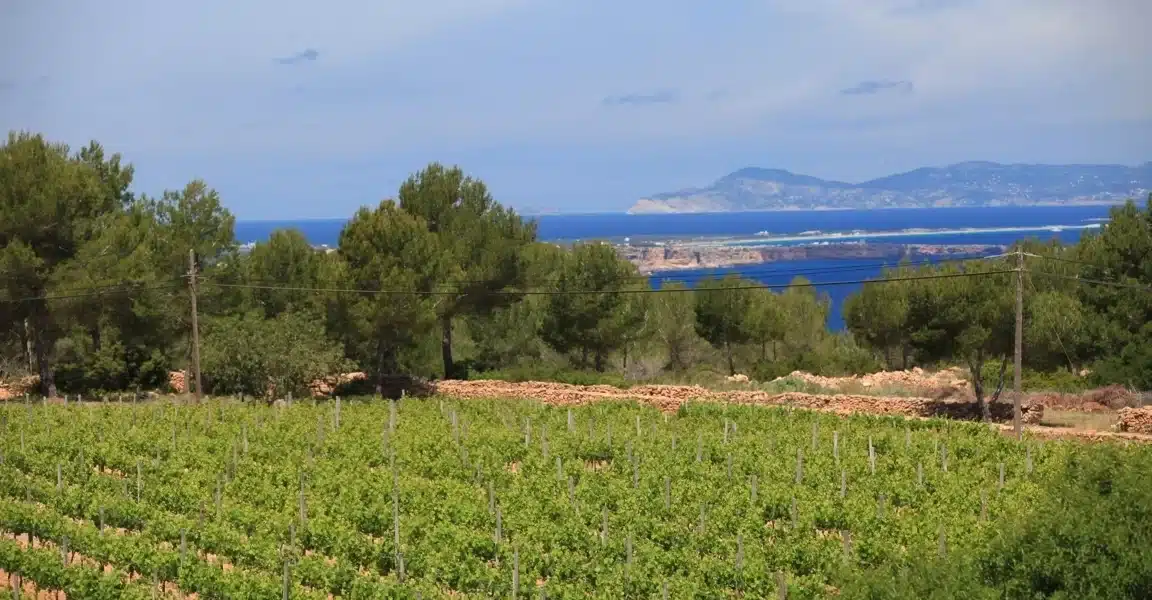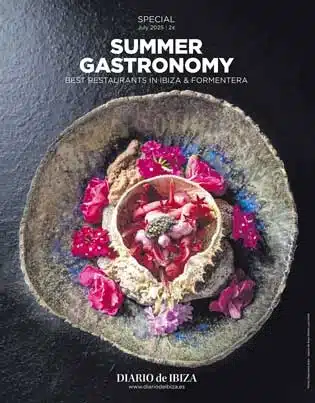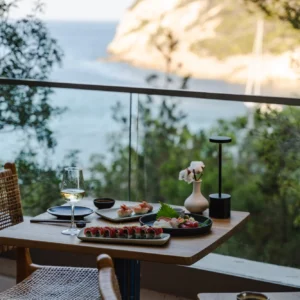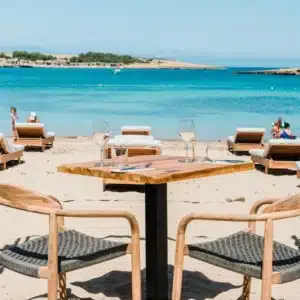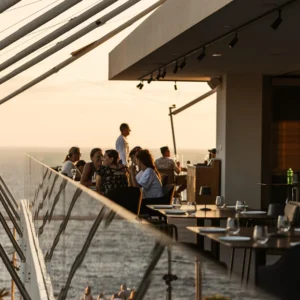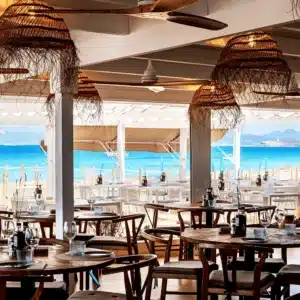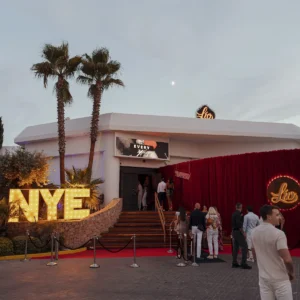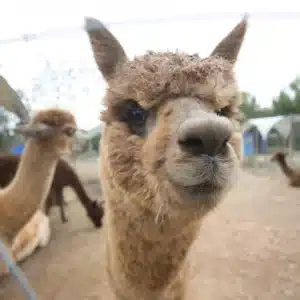Terramoll started producing wine in Formentera in 2000, since then this winery has been firmly committed to recovering the islands’ native wine varieties, such as Monastrell and Malvasía and has innovated with other foreign grapes like Viognier, Cabernet Sauvignon and Merlot.
Using these and other grapes, the winery produces two white wines, a rosé, a sweet wine and a vermouth on its 12 hectares of vineyards. The result is a range of Mediterranean wines with different nuances, very concentrated and a high salinity; characteristics that make them unique and unrepeatable.
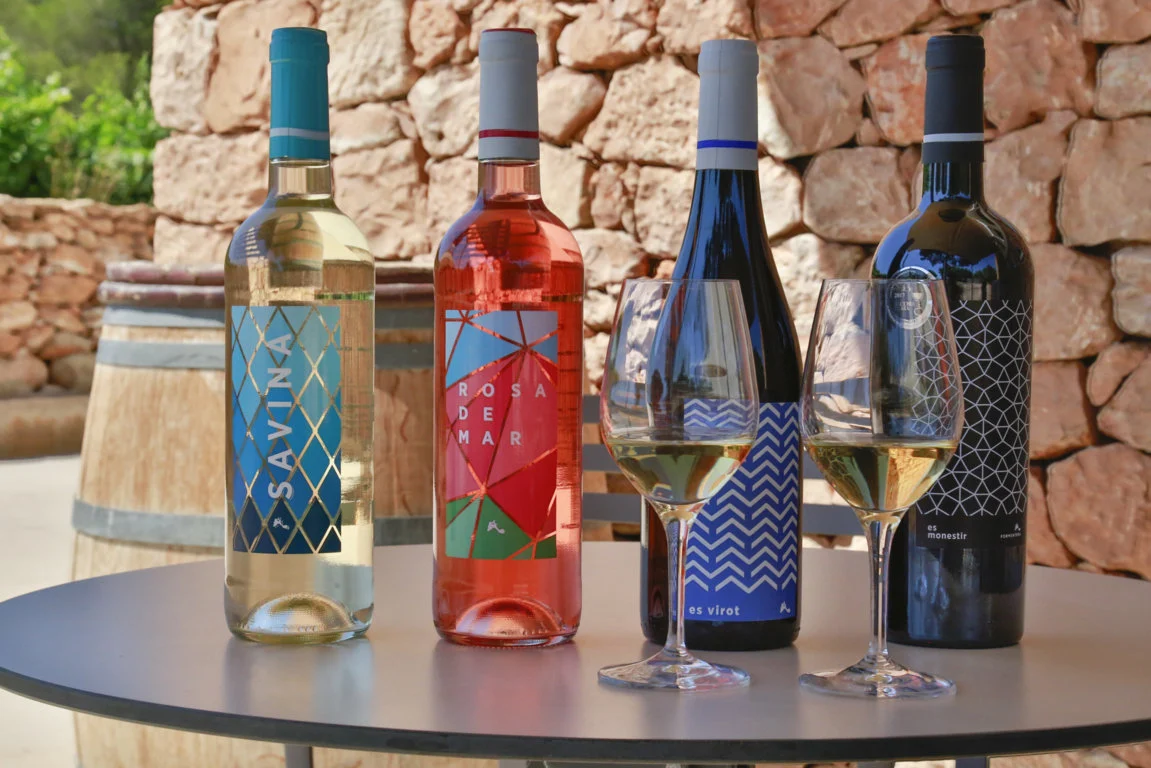
One of the things that makes Terramoll wines so special is that the vineyards are located on a small island, on the plateau of La Mola mountain, 200 metres above sea level, which is why they are bathed by the constant breeze that transports salt from the sea. What’s more, the winery limits the use of natural resources, meaning the soil isn’t irrigated or treated with any type of chemical product, herbicide or mineral fertiliser. This makes the wine production very limited, but constant, even in a year like this with very little rain.
Some of the new additions this season include the Astarté white wine, fermented in clay amphora, without skins, which makes it a wine with considerable minerality; the result is a very particular wine, which has greatly improved with this ageing system. Like the red Melqart, Astarté doesn’t contain any sulphates and is also an organic wine like the rest of the range. Incidentally, the name Astarté and Melqart make a reference of the Phoenician gods of the same names.
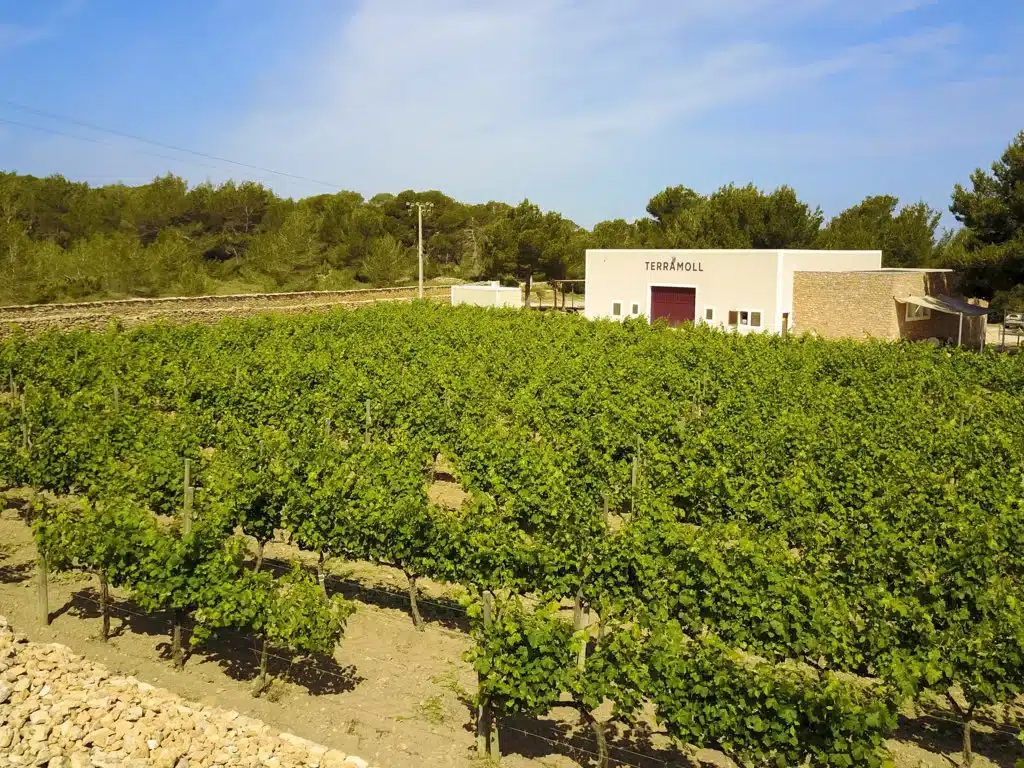
Terramoll options: rosé, sweet wine and vermouth
Just like these two wines, all the Terramoll wines have names relating to the smallest of the Pityusic Islands, such as Savina, the other white, which is named after Formentera’s characteristic tree and the port, which also bears the same name.
The rosé wine, Rosa de Mar, is an homage to the colour of the sea around the salt flats, which often takes on this pink hue. The red, Es Virot refers to the Balearic shearwater that is in danger of extinction, and the white Lliri, for the water lily or white lily that grows in Formentera’s dune systems. The red Es Monestir is produced from grapes cultivated in the vineyards on the land where it is believed the Santa Monastery once stood, hence its name. The winery also produces a vermouth called EsCaló, in memory of Formentera’s former port. The most curious of the wines is Lliri, a sweet wine that isn’t produced every year.
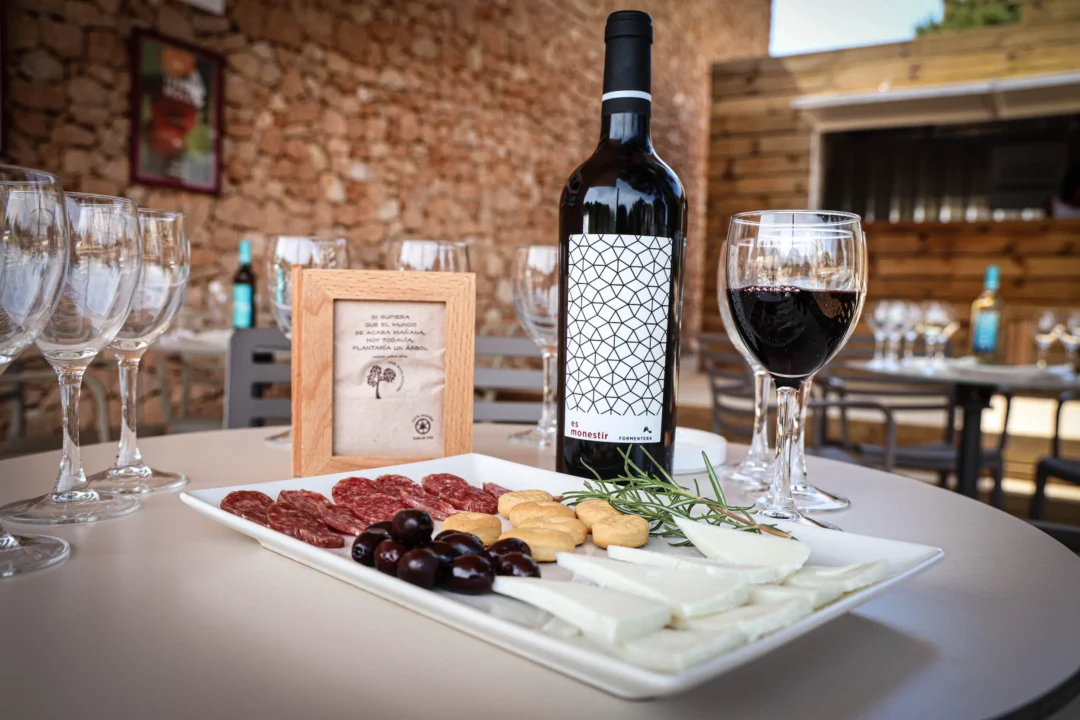
The characteristics of Terramoll limit production levels, meaning that most of the sales are made within Ibiza and Formentera, with a few cases reaching Mallorca and Germany.
